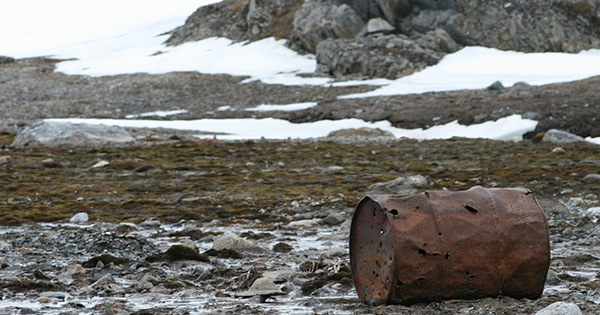A Trip to the Ski Hill
Thoughts on oil, the economy, and our increasingly elusive snow

We went downhill skiing last Sunday. By that I mean we loaded up skis, lunch, and extra clothing for the kids and drove across town in the pouring rain. We held our breath that it would be snowing in the hills. Which it was. Twenty minutes from home fat, wet flakes were coming down as we parked in a narrow pull-out at the sign for the ski hill. While my husband, Bob, and I were getting our three- and six-year-old daughters suited up, a high school student zipped up in a gray pickup and then turned around. Before zooming off again, he unrolled his window: “I’m teaching ski lessons but forgot one of my boots. Gotta run home. Be right back!”
The ski hill is a community affair. Every aspect of it—from giving ski lessons to running the single rope tow to organizing ski and snowboarding film nights at the movie theater to raise funds—is carried out by volunteers. But it’s got everything you need: a simple lodge with a wall of windows through which you can watch the action on the hill, a large woodstove that gets the place toasty, a deck out front that’s a perfect place for sunning on clear spring days, and an outhouse out back. The operation’s claim to fame is that it’s the westernmost ski area in the U.S. Its 260 vertical feet will keep you occupied for a couple of minutes each run.
A snowmachine had packed down the quarter-mile trail to the hill. My girls walked awkwardly in the jerky heel-toe steps their minute ski boots required. All of their gear found its way to us as hand-me-downs. As soon as we got to the part of the trail that slopes down to the lodge, we clicked the girls into their skis and took off in cautious snowplows.
Bob was on the board of directors of the rope tow for a while. During that time, when Sarah Palin was governor, the group secured a $44,000 grant from the state. It’s hard to imagine her not crossing that one out of the budget. And it’s hard to imagine that she was a reasonable—if only half-time—governor. She stayed away from contentious social issues and worked to reform Alaska’s tax code to give state residents a bigger piece of the public oil wealth. It’s insane to imagine what she’s become: incomprehensible, petty, vapid. But I digress.
Fishermen put up the rope tow about 50 years ago using a boat engine for propulsion. The state grant gave the group funds to install new poles, renovate the lodge, replace the rope, and build a new outhouse—all with volunteer labor. You can get a lot done with a little money when people roll up their sleeves. That’s called leveraging, but there’s nothing to leverage now. Alaska is in a hole that’s about $3 billion deep. Oil and gas revenues provide nearly all the general fund income for our state budget, which zeros out when the price of oil is about $100 per barrel. Today you can buy a barrel for less than $35.
When Palin was governor, oil prices were high and the state was so flush with cash, she sent us all a $1,200 “rebate”—ostensibly to help defray high fuel and heating costs—on top of our annual Permanent Fund Dividend, an annual check usually between $1,000 and $2,000 every Alaskan receives just for living here. That year, each state resident received more than $3,000. We didn’t have kids yet, but you can imagine what that meant for people with two, three, or four kids.
But now, there’s no money for community projects like this. And the bigger questions remain: Should Alaskans continue to receive a check every year just for living here? Who is brave enough to push for a much-needed income tax—Alaska’s political third rail? Who will be bold enough to argue that the state shouldn’t reimburse oil companies some 60 cents for every dollar they spend here while prospecting?
Because of Alaska’s dependence on oil, community projects like this are linked to the whims of global markets and the decisions multinational corporations make that have only their bottom lines in mind. It is strange to think of such a shoestring, local entity like this in that way, but it’s true.
After we’d done enough runs to make our arms and sides sore for a couple of days, we hung out in the lodge. Doug, one of the ski hill volunteers and a handy guy who is fabricating a groomer to tow behind a snowmachine, had left a pot of moose stew—made from an animal he’d taken earlier in the year—on the woodstove with a sign nearby written on the back of a paper plate that said, “Help yourself.” The salmon salad sandwiches we brought seemed suddenly unappetizing. We all ended up tucking in.

